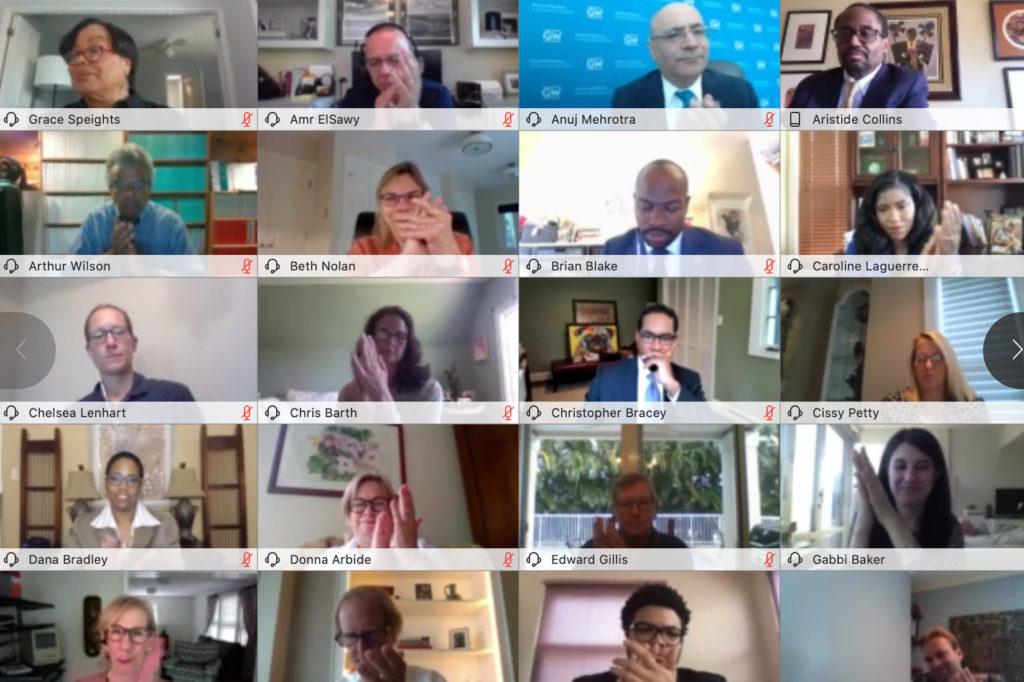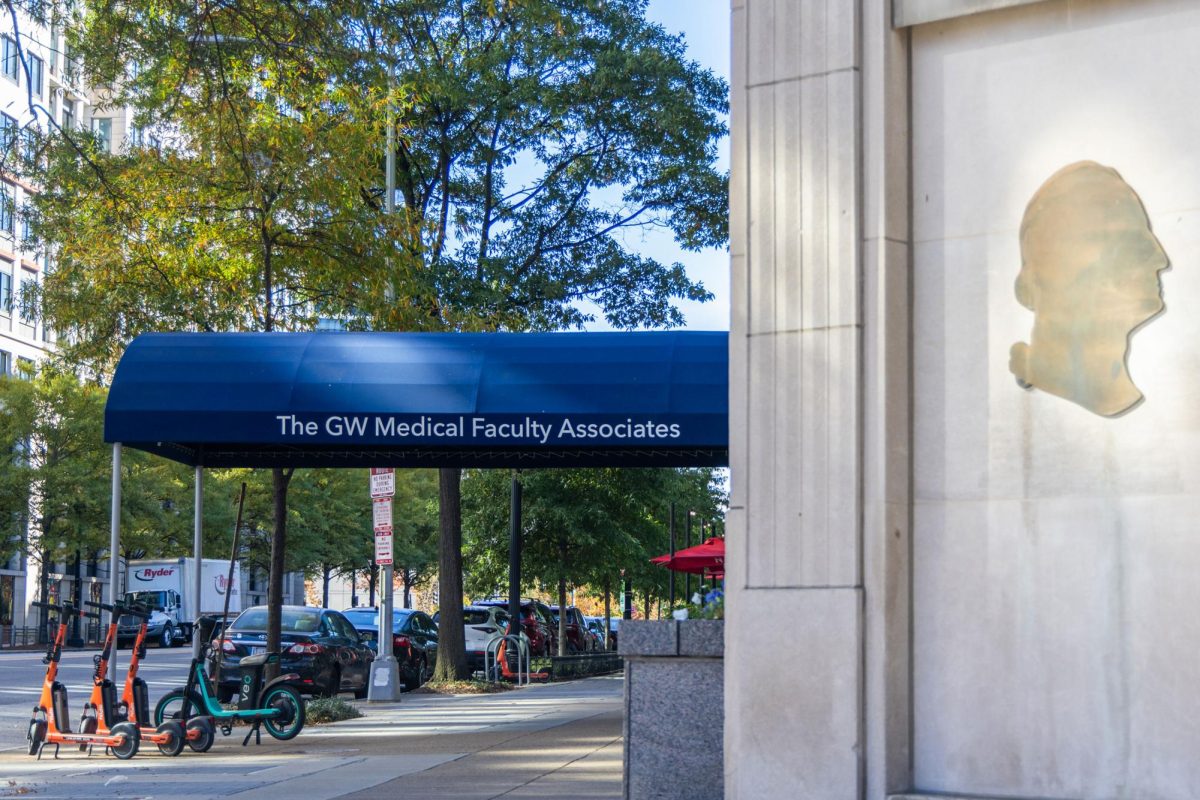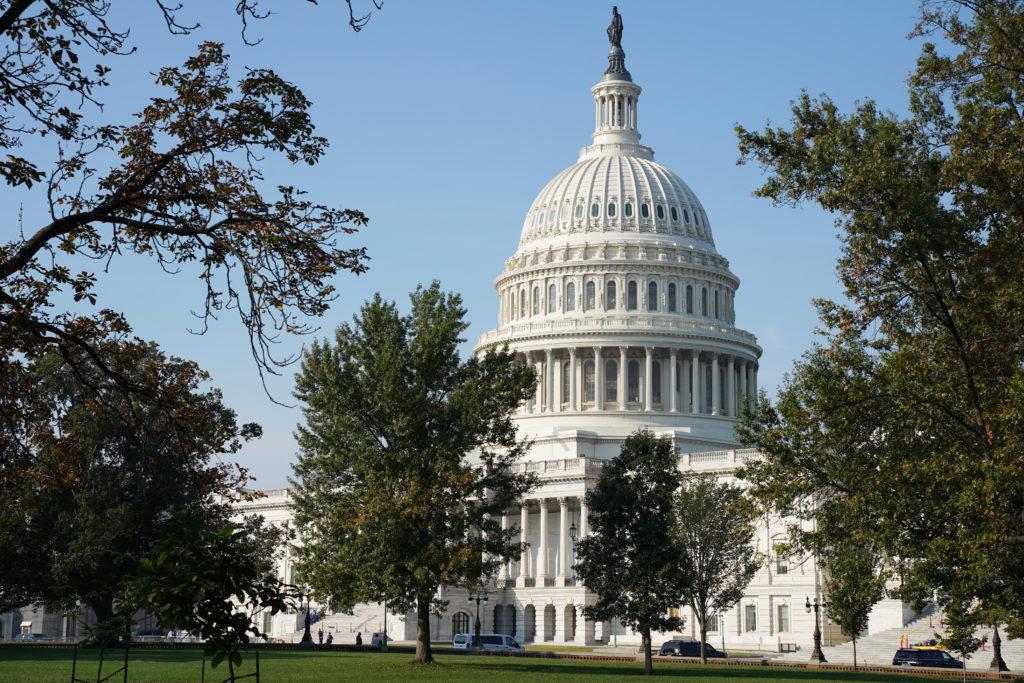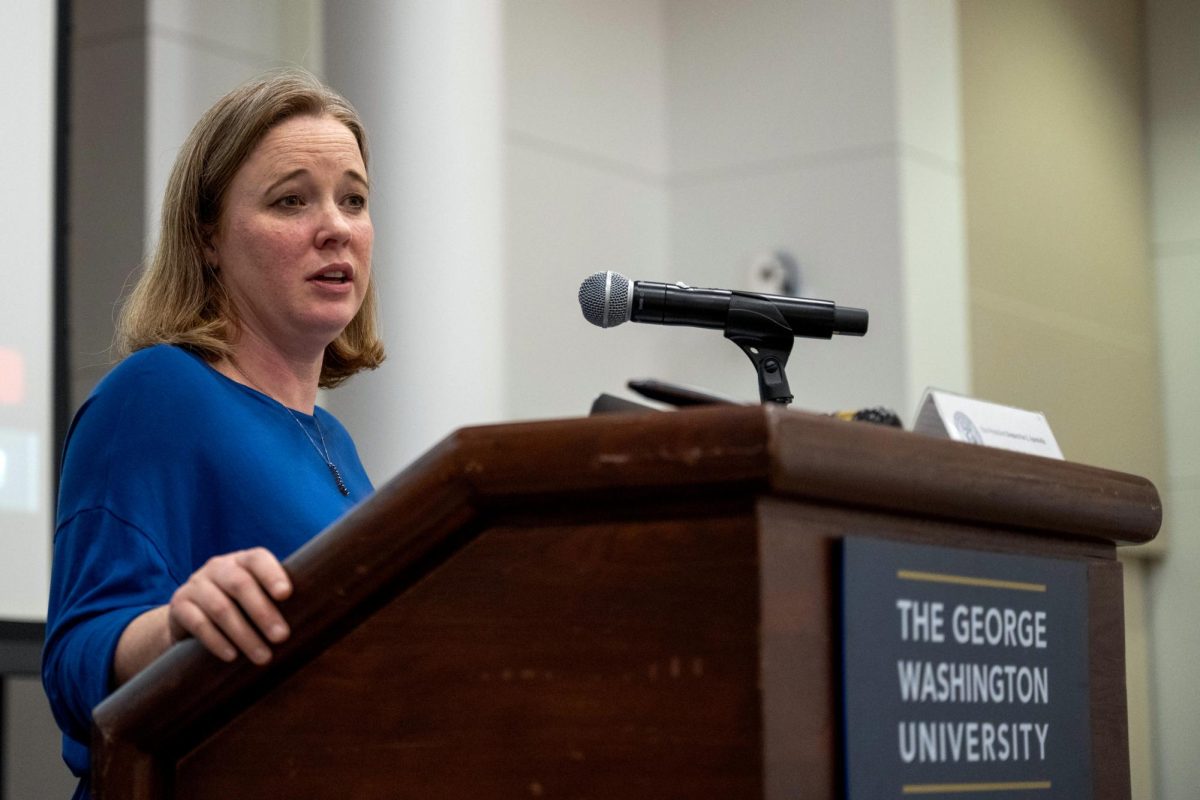Updated: May 18, 2020 at 11:56 a.m.
The Board of Trustees did not consider next year’s budget at its meeting Friday, a delay from the usual passage at the Board’s May meeting amid financial uncertainty of the COVID-19 pandemic.
Board Chair Grace Speights said the meeting, which was held virtually through WebEx, attracted more than 150 attendees – a far greater number than the typical attendance at the Board’s meetings normally held in the Marvin Center. Trustees said they plan to release the Environmental, Social and Governance Responsibility Task Force’s “early” set of recommendations to address its charge from the Board.
Speights said trustees have been “very engaged” in addressing the impact of the COVID-19 pandemic, and trustees have held a number of calls with University President Thomas LeBlanc and other officials to discuss GW’s pandemic response since mid-March.
“No one could have predicted the magnitude of this pandemic,” she said at the meeting. “President LeBlanc and his administration have done a remarkable job working diligently and tirelessly to steer our institution through this crisis and prepare for the future.”
Officials unveiled three enrollment scenarios for the next academic year earlier this month, which project annual revenue losses of $100 million to $300 million. Administrators plan to make a final decision in mid-June, days before the Board’s summer retreat – now happening virtually – and the start of the fiscal year, which begins July 1.
Environmental impact task force
Peter Harrison, a trustee and chair of the Board’s environmental task force, said members of the task force plan to host town halls to gather feedback from and share progress with the GW community in the coming weeks after they release the draft recommendations this week.
The Board established the task force in February following a week of student protests over GW’s investments in the fossil fuel industry, which are estimated to total about $53 million – 3 percent of the University’s endowment.
“The pandemic highlights the importance of environmental and social issues,” Harrison said. “We are on an accelerated work plan.”
Harrison said the task force has heard an “overview” of the endowment’s holdings, examined peer institutions’ policies on divestment and heard from GW’s sustainability experts.
“We have a strong foundation on which to build,” he said. “This has inspired us to elevate our aspirations. The task force is composed of a diverse set of constituencies, and we see this work as an important connection point across all of these groups.”
Alumni survey
GW Alumni Association President Richard Jones said more than 20,000 alumni responded to a survey conducted this spring about their perception of the University – a 7 percent response rate. He said 86 percent of respondents said they take “pride” in holding a GW degree, while 68 percent said they value their GW relationship and the University values its alumni.
But he added that only 24 percent of respondents said they feel that they are a part of the GW community.
“We clearly have more opportunities to engage,” Jones said. “We will be working on virtualizing all of our programming and making sure it is accessible to our alumni. Much of that has been virtualized already, and we look forward to continuing that.”
He also announced the group is creating a new award, called the Monumental Award, to recognize alumni who have made “distinguished contributions” in their professions. The award will be unveiled in January or February, he said.
Dean updates and trustee elections
Barbara Bass, the dean of the School of Medicine and Health Sciences, said the GW Hospital has seen a steady decline in total hospitalized patients since Monday, and the school will resume student clinical rotations June 8.
The hospital triaged patients showing symptoms of COVID-19 in March, suspended elective surgeries to accommodate patients and set up tents outside of the hospital to handle patients.
“It’s been a remarkable adventure,” Bass said. “We’re going to learn a lot and be proud of the process by which this has been managed. We’re going to get through this.”
Christopher Bracey, the interim dean of GW Law, said he has convened an ad-hoc faculty committee to discuss how to deliver the school’s curriculum in the fall if the pandemic persists.
Geneva Henry, the dean of libraries and academic innovation, said her team has worked to acquire full digital access to 60 of the 69 course textbooks available through the Top Textbooks program during the online learning period.
Her division is also providing “concierge-style assistance” to those who struggle with online education, she said. Libraries staff activated a plan aimed at implementing remote learning and operations when coronavirus cases began to rise this spring.
LeBlanc said officials are close to concluding a search for a permanent vice provost for enrollment and student success, and final decisions are now being made.
Trustees elected Mollie Bowman, a former GW ambassador and two-time graduate of the School of Media and Public Affairs, to serve as the next recent alumni trustee after more than 60 people were nominated for the position in the fall. She will serve a four-year term on the Board, succeeding Gabbi Baker on June 1.
“She served on this Board during some pretty heavy days and inflection points, including this moment,” Speights said. “We are better for Gabbi’s years of service.”
Trustees Roslyn Brock, Judy Rogers and Amr ElSawy were re-elected to serve four-year terms beginning June 1. Michael Hoffman and Madeleine Jacobs were re-elected by the Board to serve two-year terms.
Jared Gans and Shannon Mallard contributed reporting.
This post has been updated to correct the following:
The Hatchet incorrectly reported that GW Libraries has fully digitized 60 course textbooks available through the Top Textbooks program. The library has acquired full digital access to the textbooks. We regret this error.







